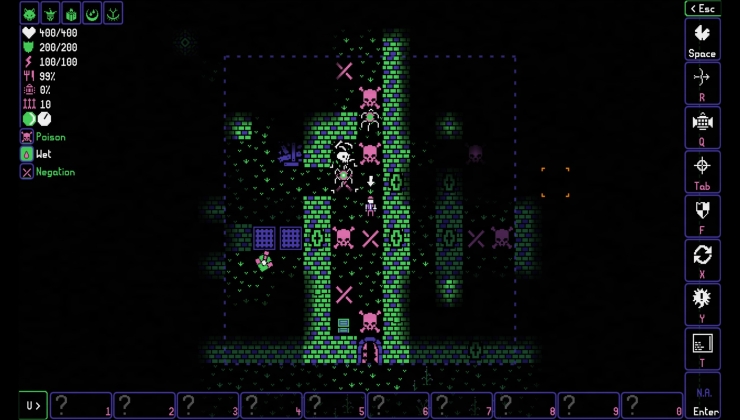The hardware vendor specializing in Linux systems has set a date for its latest venture. Their new Thelio desktop systems will be available for preorder soon.
For those of you unaware of System76 [Official Site], they’ve been selling Linux-powered laptops, mini computers and servers for a few years now and have even created their own Ubuntu derivative named Pop!_OS. Last month they started teasing their newest project, Thelio, which aims to be an open hardware desktop system.
Details on what the hardware will entail specifically are still a little light, and we’ll likely only know for sure when the system goes up for preorder, but there’s a few things that we can say for sure. In reply to a tweet sent by Liam asking whether or not they’d have a custom motherboard, the CEO clarified that “we’re pulling proprietary functionality off the mainboard and onto a custom, open source (hardware and firmware) daughter board.”
This open firmware will be GPLv3-licensed and you can already check out the master repository for the Thelio on GitHub. Personally, I can’t really make much heads or tails of the various bits of code and teaser blueprints and hardware schematics that System76 and its CEO have been posting in the last few weeks but I can say that I am excited to see a hardware vendor work on their own custom solutions for the Linux desktop.
I suppose we’ll just have to see what the prices are like when preorders go live November 1. Systems are expected to be shipped in December of this year. You may also want to check out the animated saga that System76 have created around Thelio.
Last edited by walther von stolzing on 25 Oct 2018 at 10:34 pm UTC
https://natrongithub.github.io/
I do not need a new desktop, but I will be watching this VERY closely!While still years off, once they gain the experience from desktops, they said they then want to do laptops.
Saw the link to Natron on their promo site. I hadn't heard of it before. Anyone here used it for VFX?
https://natrongithub.github.io/
natron is a quite powerfull tool, i heard of it a lot before.
an movie that used natron:
https://www.youtube.com/watch?v=xJ5SOnjIWWI
chroma key tutorial:
https://www.youtube.com/watch?v=2RkewxBMeuA
Last edited by elmapul on 26 Oct 2018 at 7:04 am UTC
Good luck.
In my fathomless ignorance, I look at [the github repo](https://github.com/system76/thelio-io); and all I'm able to gather is that it's a kind of IO card. What does that say about the BIOS in these systems, though? Could someone knowledgeable take a look and comment?
Here's [what Phoronix wrote about it](https://www.phoronix.com/scan.php?page=news_item&px=System76-OSHW-Daughter-Board) recently:
They confirmed they are not designing their own motherboard but working on "pulling proprietary functionality off the mainboard and onto a custom, open source (hardware and firmware) daughter board."
As far as I understand it, they seem to be trying to go around proprietary hardware (SATA controllers); it appears as if this will not be a truly "free and open" computer, but instead a computer with specifications laid open as far as they can.
In my opinion, "open source computers" would require moving away from x86 hardware, and that is only likely to happen after The Year of the Linux Desktop.
Thelio desktop computers will be available in 3 sizes to suit your needs:
Thelio (Up to 32GB RAM, 24TB Storage)
Thelio Major (Up to 128GB RAM, 46TB Storage)
Thelio Massive (Up to 768GB ECC RAM, 86TB Storage)
That is actually mentioned in the article, which is from a reply to me on Twitter.In my fathomless ignorance, I look at the github repo; and all I'm able to gather is that it's a kind of IO card. What does that say about the BIOS in these systems, though? Could someone knowledgeable take a look and comment?
Here's what Phoronix wrote about it recently:
They confirmed they are not designing their own motherboard but working on "pulling proprietary functionality off the mainboard and onto a custom, open source (hardware and firmware) daughter board."
As far as I understand it, they seem to be trying to go around proprietary hardware (SATA controllers); it appears as if this will not be a truly "free and open" computer, but instead a computer with specifications laid open as far as they can.
In my opinion, "open source computers" would require moving away from x86 hardware, and that is only likely to happen after The Year of the Linux Desktop.
Does this mean Richard M Stallman will finally have a decent computer to work with?
The FSF already has [an approved hardware list](https://www.fsf.org/resources/hw); as to this new machine making it to that list, I suppose it depends whether it uses Libreboot.
Last edited by walther von stolzing on 26 Oct 2018 at 10:24 am UTC
Last edited by Doc Angelo on 26 Oct 2018 at 12:23 pm UTC
I wish them all the best, but IMHO, such attempts are doomed to fail. In the end, it will cost more than hardware off the shelf, not offer more, and there's not enough people caring enough for the topic to make it a success nevertheless.Define "fail". Will it grow them to the size of Dell or Apple? No. Will it make money? Maybe. Yes, this is a small market niche; I'm sure they know that. But they're not a huge company. Even a small market niche, if they're the main people on the planet doing it, could well bring in enough revenue to be a rousing success by their standards.
Good luck.
I mean, how many computers get sold in the world every year? How many computers do you get to sell if you have a niche representing 0.1% of that? Quite a lot. Enough to keep a few people in bread and butter, I expect.
It will also double as quite effective marketing buzz. Lots of people who may not buy this in the end because of practicality issues, will still hear about it, be interested, become more aware of System76 and maybe feel friendly towards them for doing a cool thing, and maybe end up buying something else they're selling.
Last edited by Purple Library Guy on 26 Oct 2018 at 4:27 pm UTC
Plus, if this continues with system76's legendarily awful build quality, it'll be a total flop.I've heard quite a bit about System76 over the years, and yet this is the first time I've heard about their awful build quality. I infer that it can't be that legendary, being as how "legendary" implies "people have heard about it".
I wish them all the best, but IMHO, such attempts are doomed to fail. In the end, it will cost more than hardware off the shelf, not offer more, and there's not enough people caring enough for the topic to make it a success nevertheless.Define "fail". Will it grow them to the size of Dell or Apple? No. Will it make money? Maybe. Yes, this is a small market niche; I'm sure they know that. But they're not a huge company. Even a small market niche, if they're the main people on the planet doing it, could well bring in enough revenue to be a rousing success by their standards.
Good luck.
I mean, how many computers get sold in the world every year? How many computers do you get to sell if you have a niche representing 0.1% of that? Quite a lot. Enough to keep a few people in bread and butter, I expect.
You have to remember that as well as consumers, System76 have a lot of big corporate customers, too... Pixar being one of the most well-known examples - and companies like Pixar spend a lot of money.
Also, System76 have repeatedly said that Pop!_OS was specifically designed with their customers in mind (if I remember correctly, they even went as far as stating that this claim was in reference to their corporate customers in one or more blog posts); it would be natural to assume that the same can be said about their "Open Source computer".
Plus, if this continues with system76's legendarily awful build quality, it'll be a total flop.I've heard quite a bit about System76 over the years, and yet this is the first time I've heard about their awful build quality. I infer that it can't be that legendary, being as how "legendary" implies "people have heard about it".
I've heard the claim a couple of times over the years... But from what I can tell, poor quality hardware is not as common as one would think; it seems to just be the age-old "angry customers make the most noise".
Based on what I can see online, the overwhelming majority of System76 customers have always seemed quite happy with their purchase and as I said above, clearly their hardware is of a high enough quality to attract the likes of Pixar, among other corporate giants...
Last edited by Cyba.Cowboy on 27 Oct 2018 at 8:37 pm UTC
I've heard the claim a couple of times over the years... But from what I can tell, poor quality hardware is not as common as one would think; it seems to just be the age-old "angry customers make the most noise".For what it's worth, I've had two System76 laptops (including my gaming machine now) and I've been extremely pleased with both. They've been rock solid and I've never had a single hiccup.
Based on what I can see online, the overwhelming majority of System76 customers have always seemed quite happy with their purchase











 How to set, change and reset your SteamOS / Steam Deck desktop sudo password
How to set, change and reset your SteamOS / Steam Deck desktop sudo password How to set up Decky Loader on Steam Deck / SteamOS for easy plugins
How to set up Decky Loader on Steam Deck / SteamOS for easy plugins
Oh and the name doesn't mean anything but coincidentally could be pronounced as "Buttery" which suits me just fine.
See more from me